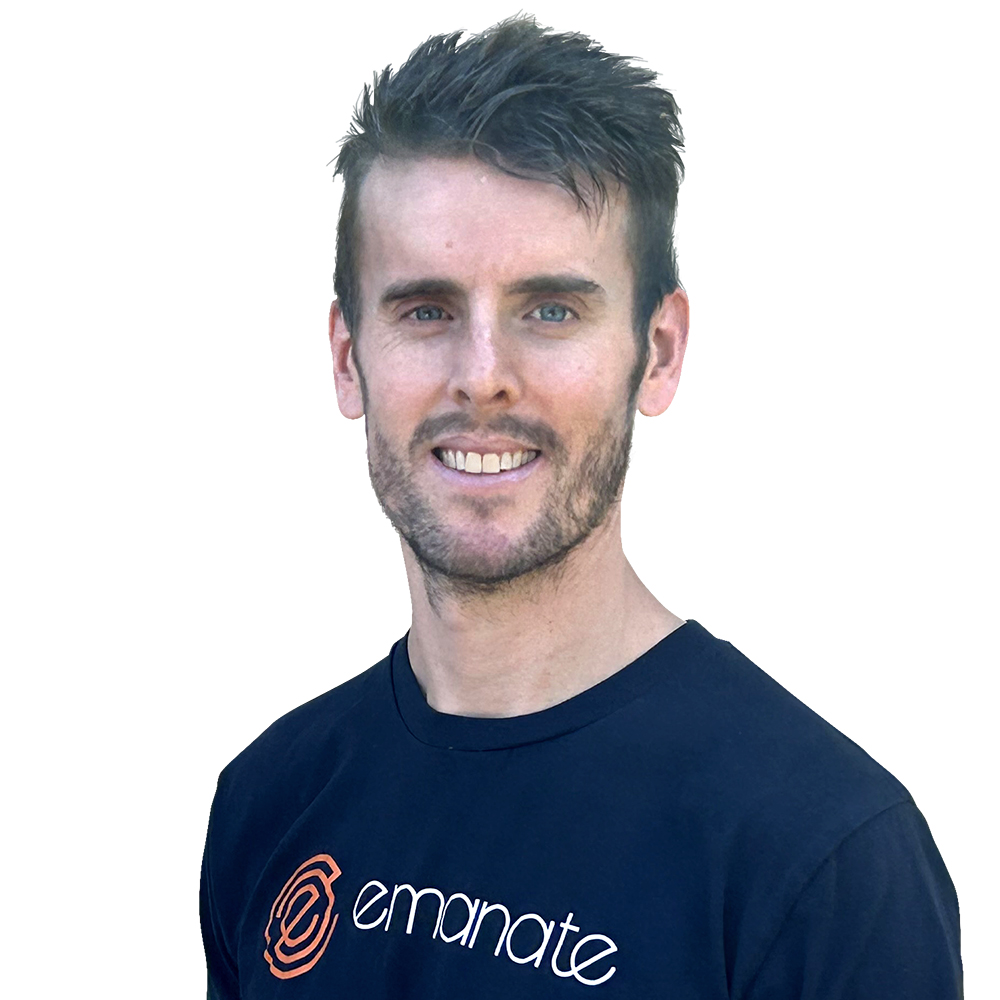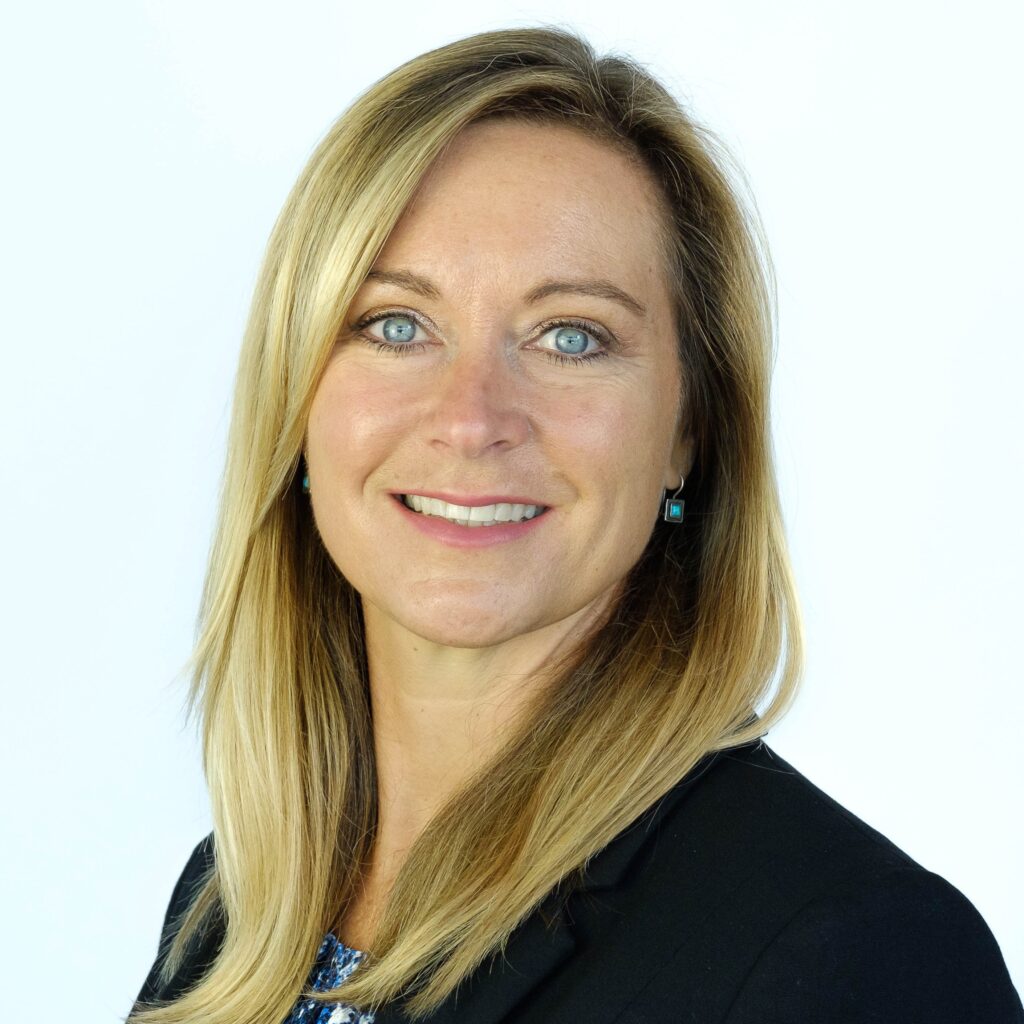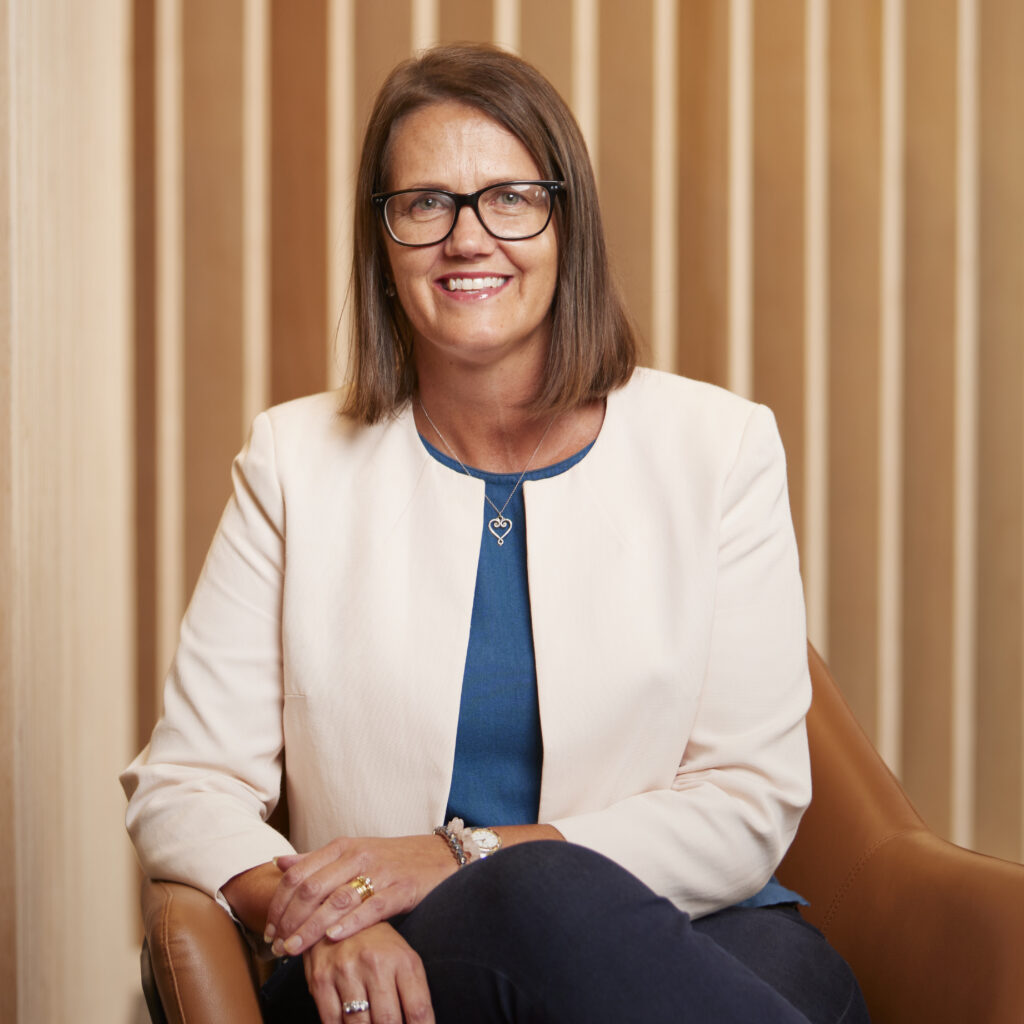
- Author: Jessica Mudditt
- Posted: October 4, 2023
From FP&A to the C-Suite: The Modern CFO’s Journey
In the ever-evolving landscape of modern corporate finance, the role of Financial Planning and Analysis (FP&A) has undergone a remarkable transformation. Historically perceived as a supporting function in the finance department, FP&A has now emerged as a direct line to the coveted position of CFO. This paradigm shift is a testament to the growing importance of FP&A professionals in shaping strategic financial decisions, optimising performance, and providing critical insights that steer organisations toward success.
In her latest article for CFO Magazine A/NZ, Jessica Mudditt spoke with four CFOs about how they transitioned from FP&A into the roles they hold today and what this trend could mean for the future of finance.
Michael Bree, CFO | Emanate
JM – Can you share a little about your finance career path so far?
MB – I came to Australia about 12 years ago from the UK and I basically got thrust into FP&A by chance. Lots of Brits don’t have local knowledge when they first arrive, so it’s a struggle to get roles in financial accounting. This turned out to be one of the best things that happened in my career.
I always saw my career as a series of stepping stones acquiring relevant skills to enable me to become a successful CFO. I worked in various FP&A roles, some more commercial than others and always took on additional projects which ended up being where I learnt the most. Through internal promotions at Manpower I became the FP&A Director and just over 12 months ago I stepped into my first CFO role.
JM – How can FP&A challenge and transform you as a finance leader?
MB – In FP&A you end up working with the business a lot more and becoming a leader in the organisation. In my role at Manpower, I was working so closely with the leaders that when a leader left, I ended up taking on his role and managing a business about 70 people for three months during the transition period. FP&A is a completely different skillset to Financial accounting. You’ve got to be dynamic in your personality to thrive in FP&A roles. Your workload changes every day. You can go into the office thinking you’re going to do one thing and you end up doing something completely different. It’s very different to financial accounting, where you know what your role is from month to month. That being said having a financial accounting base is a great advantage in FP&A as sometimes you need to investigate and understand problems and knowing journal entries helps a lot.

JM – Has FP&A assisted your journey to CFO?
MB – When I first started my career, I was working on building budgets and costs. As time passed, I ended up in more commercial roles – and that’s where I began working with the business and transforming parts of it. When I was at Reuters, for example, I could see a problem with the way the sales team were operating. They were basically getting paid commission on new business rather than needing to grow their portfolio. They had no incentive to grow their portfolio.
I changed this structure with strong support from the business’ leaders. FP&A is about building strong relationships. There’s a lot of subtle stuff to learn about negotiations. One of the great things about these roles is that it gets you operating at a senior level with leaders. You end becoming the 2IC to their business. You also gain incredible skills in Excel, as well as problem solving skills. It undoubtedly accelerated my path to becoming a CFO.
JM – How do you see the future of finance playing out in coming years?
MB – Finance is going to change because the lower end roles are going to disappear. We are already seeing this occur. Finance is going to become a lot more about business partnering and commercial operations. This is both good and bad. It’s going to make it harder for junior people to enter the workforce because they’re going to need a whole bunch of skills that it takes time to develop. But it’s become a more commercial role, which is a positive because accounting roles will be more interesting and will have far greater strategic influence on businesses.
JM – What are your thoughts on the expanding purview of the modern CFO and what does this mean for the future of finance?
MB – The role of the CFO is getting broader and broader. A huge part of the CFO role is risk management which will include cyber security, along with overseeing various operational aspects of the business. CFOs will need to have a broader range of knowledge and skills than ever before.
The modern CFO will need to be across many areas of the business but will only dive deeper into an area when they foresee a problem arising or something that can be improved. Being spread too thin is a challenge that all CFOs face. Some of the most brilliant people I’ve worked took on too much themselves and didn’t work to the best of their abilities as a result. It’s really important to hire the right people around you and to build trust with your team and peers. The future of finance is bright. The modern CFO will need to continually learn and will need to be aware of emerging technologies that can benefit or disrupt the markets they operate in.
Tanya Ward, CFO & COO | Cape
JM – Can you tell me about your career trajectory to date?
TW – I started off as chartered accountant with EY in North America. I was in public practice in Vancouver, and I had the opportunity to take an internal transfer to Australia in 2005. I started working with the banking group in financial services division and I split my time between technical advisory and audit.
I then moved into corporate as a Financial Controller within Westpac Treasury. This was during the financial crisis, and it gave me a strong understanding about funding structures, hedging, and the importance of balance sheet and cash flow management, particularly in times for economic volatility.
One of my mentors within Westpac approached me about a newly created role in investor relations. It gave me a chance to leverage my technical knowledge of liquidity, balance sheet management and regulatory capital, but required me to step back from the detail and think about the big picture. It propelled me to communicate the stories behind the numbers, to understand the business positioning around risks and be able to articulate the broader strategy and execution across the organization.
After a time in finance transformation, I joined Pepper Financial Group in 2018 as Group Head of Financial Planning and Analysis. Three years later I became the CFO and COO of Cape. Working across large corporates, mid-sized scaling business and an early stage start-up has been a great development opportunity, particularly in the businesses that are more entrepreneurial and operate at a faster pace in terms of execution.
JM – What are your thoughts on the transformative nature of FP&A roles?
TW – You develop many valuable skills through FP&A roles. For example, focusing on both the performance reporting and financial modeling gives you an ability to not only see what has driven current business performance, but how the current strategy is expected to deliver in future performance. Through partnering with the business, you understand the commercial drivers that contribute to growth/margins and can communicate that story and insights to stakeholders to enable them to make informed business decisions. From this perspective you can look at past, current and future performance and connect all the dots.

You can say, ‘If we’re here now and we want to be over there in the future, what is the strategy to deliver that?’ You can make sure there’s alignment between the communicated strategy and what is being modeled in those numbers. It gives you the opportunity to identify any gaps or misalignments and communicate it with the stakeholders.
To me, the real value of FP&A roles is the exposure it gives you to the executives of the business. You learn how they think about the business, how they communicate the strategy, and how they talk about executing it. Seeing how this sits within the financial models and the numbers helps to build a strong commercial and business acumen.
JM – How are roles and relationships evolving for the modern CFO?
TW – The relationship between CFO and CEO has broadened in recent times and is a key partnership that benefits from complementary skillsets to balance business growth and profitability when making strategic decisions. A CFO has a much wider remit than just accounting and numbers. It is about delivering data-led insights on financial performance and providing analysis on capital deployment decisions to help the business deliver on its strategy and growth.
Being an effective CFO is about balancing growth targets, costs, compliance and cash flows against overall shareholder value accretion whilst supporting the CEO in making informed decisions. In these challenging economic times, the need for a strong understanding of cash consumption and funding to ensure that the business is on strong footing is absolutely critical.
Sharon Markulin, CFO | 5B
JM – Can you share some key highlights on your pathway to CFO?
SM – I started out in the utilities industry in the Hunter Valley in New South Wales, and then I went to the UK in 2000 for the obligatory ‘Aussie in London’ experience. I was head of financial planning and analysis at The Guardian Media Group. It was an exciting time to head up finance because the organisation was considering whether its online presence would be a paid or unpaid model.
The Guardian is slightly left of centre and the experience taught me that it’s not always just about financial success. As I was doing my analysis, I was mindful of the organisation’s values and purpose. I was working with some very talented journalists.
When I returned to Australia, I moved into the Woolworths business. I was there for 11 years but it didn’t feel that long because I was moving between divisions. I had a new role every 18 months or so. I worked for Dick Smith, Big W and I ran the finance function for the liquor division for several years, before moving into a few projects at a corporate level.
My first CFO role was in 2016 at Agtech innovators Green Camel, and in March last year I became CFO at solar energy pioneer, 5B.
JM – What are some of the most important things about FP&A?
SM – The most important thing that FP&A brings is that you really understand the drivers of the business. You’re intimately involved in the analysis of what needs to go well to deliver the outcomes the organisation is looking for, whether that’s pure profit or other measures.
FP&A also gives you the ability to rank the drivers. Often there is such a breadth of things that is trying to be achieved. If you can bring it into a more manageable group of KPIs that you need to nail and you focus all of your attention on them, you have a much better chance of success.
For example, comparable sales and inventory management are some of the most important drivers for success in retail. If comparable sales are not going well, then clearly the business is not going well. Similarly, if you’re holding too much inventory it’s a liability because it ages (with the exception of some fine wines!).

JM – How do you see the future of finance playing out as we approach 2030?
SM – The finance function will continue to develop into a trusted and impartial business partner. I have seen this progression over my career and I think the trend will continue.
There’s still quite a bit within the finance function that is mechanical and repetitive, so I see more automation occurring, particularly with the assistance of AI. It’s surprising that so little is automated, but that’s because it’s really complex. If you think about accounts payable, for example, every single invoice that you receive from suppliers looks different. It’s not like you can just put it all into a database. If we can solve issues like this, we can dedicate our resources to much more value-added work, rather than simply number crunching and processing.
JM – What advice would you give to someone in FP&A who aspires to be a CFO?
Be really clear about the things that FP&A gives you, as well as the exposure that you don’t get. Seek out experience or training in those areas as well as hiring team members with strength in those areas. One area of growth, development and future focus for me has been to add governance and risk management to my skill set, which is why I just did the AICD company directors’ course. It was brilliant.
Chris Chan, CFO | Mapien
JM – What has been your finance career path to date?
CC – I took a slightly different route from most accountants by going straight into commercial when I joined Virgin Australia’s finance graduate program. One of the rotations involved a few months at Brisbane airport. We did the same training as the ground crew, so I was checking people in and helping passengers board flights. It gave me an appreciation of operations and an ability to see beyond the numbers.
When the grad program finished, I was offered a position in pricing in Virgin Australia’s Revenue Management department. It was completely outside of accounting and it required a lot of commercial analysis, modelling and stakeholder management. I explain it to my friends like this: I can calculate the best price from a mathematical point of view, but if other aspects such as marketing are not considered, the price will never get published. This strengthened my skillset to see beyond the numbers, take into consideration other factors and communicate effectively with experts from various departments.
I was lucky to be involved in setting prices for the Brisbane to Sydney, Sydney to Melbourne and Brisbane to Melbourne routes, which are known in the industry as the ‘golden triangle routes’ because they are one of the world’s busiest domestic routes.
I spent a few years at Flight Centre as part of the Analysis and Reporting team and I eventually led that team. I also worked in a few financial controller and head of commercial finance roles where one of my core focuses was around financial planning and budgeting.
I joined Mapien in April 2022 as a commercial manager and in July this year I became the CFO. A core pillar of my role is financial and strategic planning and accountability.
JM – What are your insights on the transformative nature of FP&A roles?

CC – I haven’t worked at a Big 4 firm, so I never had the “traditional” accounting training. I’ve never done a company tax return from end to end in my whole life – not even to this day. When people start in public practice and especially in business services, that’s their bread and butter.
However, each of the businesses I have worked for has helped me round of my experiences and I have identified areas where I’ve needed to gain experience. By walking a non-traditional accounting pathway via FP&A, it has helped me develop a strong ability to communicate and understand the business.
I’ve also ensured I built a strong network of experts around me to help fill some of my weaker areas. This has proven invaluable in making sure where I may not have the skillset that I can lean on someone else quickly to get me up to speed.
An FP&A role is transformative because a senior member of the business will come to you and say, ‘We’ve got this problem that we’re trying to solve.’ And we then bring the stats and commercial acumen to help them solve it. Beyond that, an FP&A person starts providing their recommendations based on their understanding of the business both at a financial and strategic level.
And finally, someone in FP&A can become a trusted partner. If the operations person that you’re partnering with invites you to regularly to plan, talk about the problems ahead and strategize, you know that you have done your job well. They’re showing that they are willing to be challenged and supported by you.
In 2019 I won a prestigious award at Flight Centre that is usually given to operational staff. The GM told me that the reason I won the award was because I made the numbers simple. To me that sums up what FP&A is all about.








